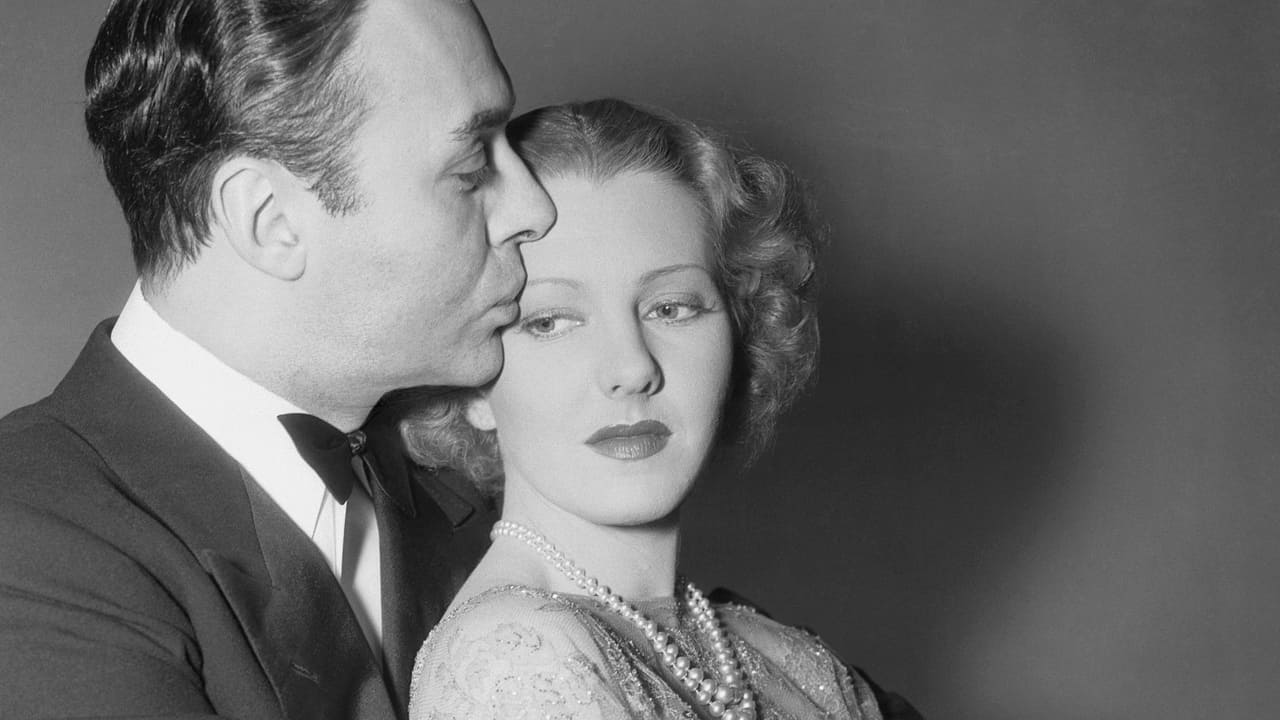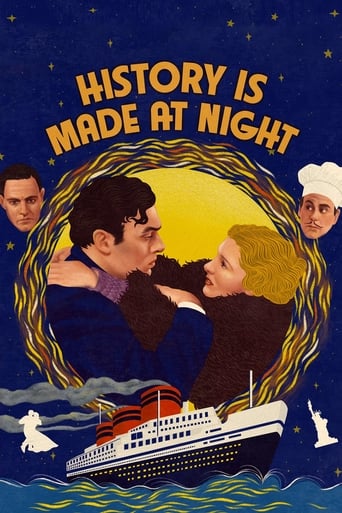

What makes it different from others?
... View MoreBetter Late Then Never
... View MoreIt was OK. I don't see why everyone loves it so much. It wasn't very smart or deep or well-directed.
... View MoreThis is one of the few movies I've ever seen where the whole audience broke into spontaneous, loud applause a third of the way in.
... View More"Bruce Vail" (Colin Clive) is a shipping magnate who has one major flaw—an obsessive suspicion that his wife "Irene Vail" (Jean Arthur) is cheating on him. This insane jealousy gets so bad that one day she decides to file for a divorce while in Paris. However, because his obsession concerning her is so strong and twisted, he quickly comes up with an evil scheme to nullify the divorce--which only serves to send her into the arms of another man—a headwaiter named "Paul Dumond" (Charles Boyer). What nobody counts on is just how far Bruce will go to stop the divorce. Now rather than reveal any more I will just say that this was an enchanting romantic-comedy which still manages to remain fresh and entertaining almost 80 years later after it was produced. Admittedly, I thought the ending was a bit corny but even so the performance by Jean Arthur more than makes up for it. Again, it's an old film but those who enjoy movies of this type will certainly be pleased with this picture. I rate it as above average.
... View MoreJean Arthur, Charles Boyer, Colin Clive, and Leo Carrillo star in the big-budget "History is Made at Night," directed by Frank Borzage and released in 1937.Arthur plays Irene Vail, who has divorced her wealthy husband Bruce (Colin Clive), but he won't accept it. He hires his driver to fake an adultery situation with Irene while she is in Paris, which voids the divorce.Before that can happen, a headwaiter, Paul Dumond (Boyer) rescues her by pretending to be a thief and stealing her jewelry. Bruce has arrived to "catch" Irene, but he winds up in the closet, while the chauffeur is knocked out. Paul rushes out with her and returns her jewelry while they drive around Paris.Paul takes her to a restaurant, Château Bleu, where he works with his good friend Cesar (Carrillo). Paul and Irene fall in love. Unbeknownst to them, Bruce has murdered the chauffeur. He blames Paul and forces Irene to return to New York with him.Paul travels to New York to try to find her. He and Cesar obtain work in a fancy restaurant. He reserves a table for Irene, knowing she will eventually come there.This lovely film, beautifully acted by Boyer and Arthur, takes a surprising turn -- well, it was a surprise to me -- that makes for an exciting finale. Of interest, Irene and her husband are set to travel on the Hindenburg, which actually caught on fire and fell from the sky a few months later.This was Colin Clive's last film, sadly, as he was stricken with pneumonia and died at the age of 37 a few months later. The wonderful Boyer, so suave and with his to-die-for accent, actually didn't seem to have much vanity. He wore a toupee for movies, but all other times, including those when he was out in pubic, he did not. He and Arthur make a sweet couple. Arthur could do drama and comedy equally well.Romantic and atmospheric - it's so hard to believe that some of these films were made on sets.
... View MoreJean Arthur stars as a bored socialite married to insufferably possessive Colin Clive (didn't she notice he was a raving nut at some time during the courtship?) She sensibly divorces him, but he decides, with psychotic logic, to muck up the proceedings by arranging for his chauffeur to be found with Arthur in her Paris hotel room, thus forcing the divorce to be nullified (by French law). Charles Boyer is a Parisian headwaiter who overhears the scuffle between Arthur and the chauffeur from the next room; he climbs in through the balcony, overpowers both the chauffeur and Clive, and "kidnaps" Arthur, pretending to be a jewel thief. This being a movie, he spirits her at once to his restaurant, arriving just as it closes; he persuades his friend, the master chef, to keep it open for just the two of them. The scene which follows is the improbable, glamorous, heavenly highlight of the movie, with Arthur and Boyer falling in love over lobster and dancing a sweetly awkward tango during which Arthur tosses off her shoes (and, via movie symbolism, her previous unhappy life.) Unfortunately, Clive kills the unfortunate chauffeur to frame Boyer for the murder, and the contrivances that follow are too much to swallow even for the romantic melodrama intended here. Boyer and Arthur are an unimaginably charming pair, but they are asked to behave in a sickeningly noble fashion which doesn't suit either of them (Ingrid Bergman or Bette Davis could have made much more out of this scenario). Clive is so mad (and isn't funny or perversely charming at it) that the notion of Arthur submitting to him in order to save Boyer is very hard on the stomach. Even the most gushy-hearted romantic may have a hard time submitting to this one.
... View MoreI saw this on a VHS release here in the 1980's and was one of those films years later I could not forget. How could one forget this memorable title with a equally interesting and unusual combination of love, comedy, drama and disaster that in many other circumstances would simply not work! Boyer and Arthur's romantic moments...pure magic as is Boyer and Leo Carillo's comedic turns. Produced to the tune of over a million dollars (a very generous budget for 1937) independently by Walter Wagner the look of this "A" production certainly reflects this. The deft hand of Borzage could only keep the goings on fluent with the seemingly challenging narrative in a film that easily keeps the viewers attention. To my mind one of the highlights of 30's cinema. I urge anyone interested in this era - see this film!! Available on DVD (mine is a South American copy and OK print quality).
... View More